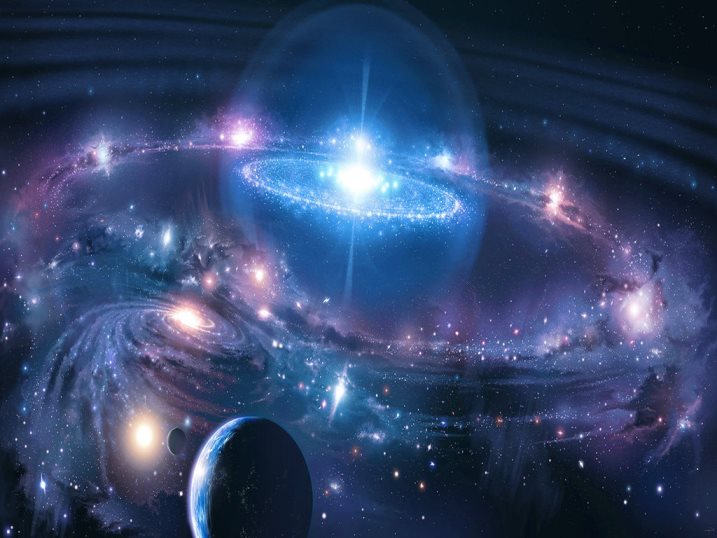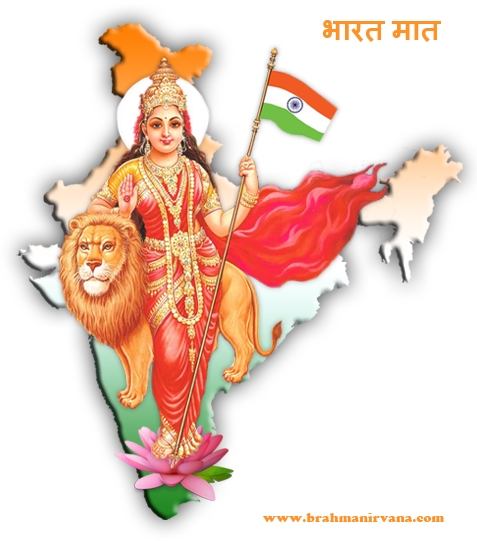It is very important to understand what the poet implies with the word “Karma” in this stanza in order to not get confused. Karma in this stanza implies all our “residual karma”. After death, our subtle body experiences the result of all karmaas that can be experienced by the subtle body in other worlds except on Earth. However, some results of our karmaas can only be experienced by the gross body. These are the residual karmaas that our gross body experiences while they are on Earth. During the time between birth and death, our subtle body experiences the results of both good and bad karmaas in other worlds, without accumulating any new karmaas. Only the gross body can accumulate new karmaas.
Poet then exclaims realizing how Mother Earth fulfills the wishes of everyone! He says, “Bakthanmarkkum mumukshu janangalkkum…” : The Mother Earth fulfills the wishes of everyone – of the devotees, of people who aspire moksha (liberation from samsara) and even of those who are materialistic and desire driven. Everyone is alike to Mother Earth and she helps everyone to excel in their own chosen path as long as we are sincere in achieving those goals.
It is also said that, the poet is exclaimed at the fact that, even though the Bhoomidevi (Mother Earth) feeds and fulfills everyone’s needs, even including those materialistic people, they never seem to stop running after material benefits and pleasures even after achieving what is righteous to them.
The poet goes on to describe Mother Earth as the creation of Lord of Universe in the visible form. He implies that Mother Earth is God herself.
One of the interpretations of the word “Viswanaathante…” is by Shri. K.R.Neelakandan Nambeesan who wrote “Tatva Deepika”, one of the most comprehensive interpretations of Njanappana. He says, the meaning of “Vi” is “bird” and “swaa” means “dog”. Thus the word “Viswanathan” means, the one whose limitless mercy and love reaches the whole universe, from the birds to the dogs, undoubtedly making Him the God of all.
Poet then continue to describe how blessed this earth is! There have been several incarnations of God descended onto this earth to protect and safeguard this Bhoomi Devi (Mother Earth)! For this reason alone, he says, the earth is very special and is the best of among all the 14 worlds. This has been acknowledged by both vedas and the ones who have learnt the vedas.
“Lavanaabudhi madhye vilangunna Jambu dweeporu…” – he talks about an island named Jambudvip which stands in the middle of the ocean, having an area of approximately 100,000 yojanas (1 yojana = 5 ~ 8 miles). He glorifies how blessed this island is compared to all other 6 islands!
There is this interesting intepretation of Naarayaneeyam by Shri. KVG and Shri. S.N.Sastri: “Puranams say that the earth is in the shape of a lotus bud in the center of which stands the mountain Mahameru or Sumeru. Once, King Priyavratha observed that the Sun God shines only on one half of the earth’s surface in the course of his circuit around Sumeru and leaves the other half in darkness. The King thought that it was not good to waste half of the day as night. Therefore he made seven circuits around earth, in his effulgent car, following the Sun at its speed determined to turn night into day. The tracks that were sunk by the fellies of the wheels of his chariot came to be the most celebrated seven oceans which divided earth into seven islands.”
The poet, while glorifying Jambu island (Earth) and continues, “Ithil ombadhu gandangal undallo, Athil uttamam bharatha bhoo thalam” – of the nine regions of Jambu island, the best and the most blessed region is Bharat (India). He says that, Bharat is the only place where one can do good karma and attain Moksha (liberation)! Bharat is considered as the “punya bhoomi” – the sacred land and it is a “Yoga bhoomi” – the land of spirituality. It is the land where God himself descended in very human forms like Lord Krishna and Sri Rama! It is also a land that gave birth to great saints, sages, seers, yogis and seekers…
According to this Wikipedia post, “The Sanskrit word bhārata is a vṛddhi derivation of bharata, which was originally an epithet of Agni [fire]. The term is a verbal noun of the Sanskrit root bhr-, “to bear / to carry”, with a literal meaning of “to be maintained” (of fire). The root bhr is cognate with the English verb to bear and Latin ferō. This term also means “one who is engaged in search for knowledge”.
There is another very interesting meaning to the word “Bharat / Bhārata”. “Bha” stands for “Bhava” (expression), “Ra” for “Raga” (music / melody), “ta” for “tala” (rythm). This is a land where the glory of Gods are sung with Bhava, Raga, Thalam! Another name for India is “Hindu Desam” where “him” stands for “himsa or violence)” and “du” stands for “dura or shun / eschew”, making it the land that shuns violence, the land that practices non-violence.
The poet glorifies Bharat by saying that this land is even greater than “Satyaloka” (Brahma Loka, the abode of Lord Brahma). He then talks about how fortunate are those who are born in Bharata varsha (according to Mahabharata, it is the land of King Bharata) and for all these reasons, we should not hesitate to begin our spiritual journey without any delay!
To be continued…


